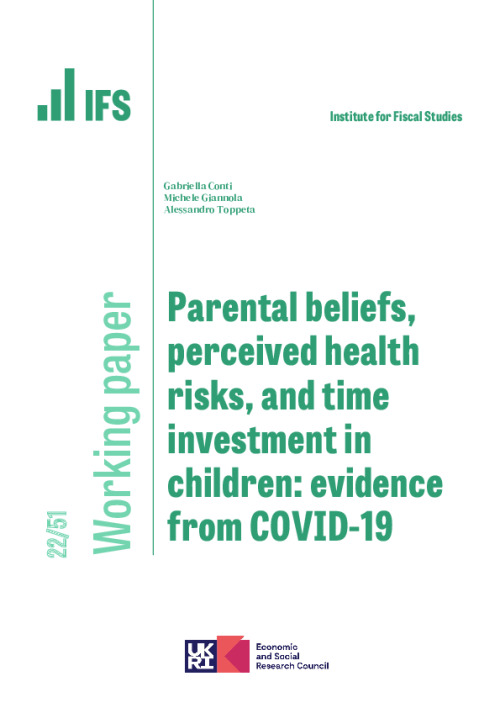When deciding how to allocate their time among different types of investment in their children, parents weigh up the perceived benefits and costs of different activities. During the COVID-19 outbreak parents had to consider a new cost dimension when making this decision: the perceived health risks associated with contracting the virus. What role did parental beliefs about risks and returns play for the allocation of time with children during the pandemic? We answer this question by collecting rich data on a sample of first-time parents in England during the first lockdown, including elicitation of perceived risks and returns to different activities via hypothetical scenarios. We find that parents perceive their own time investment to be (i) more productive and (ii) less risky than the time spent by their children in formal childcare or with peers. Using open-ended questions about their pandemic experience and detailed time use data on children’s daily activities, we then show that parental beliefs are predictive of actual investment choices, and are correlated with parental feelings derived from sentiment analysis. Lastly, we show that less educated parents perceive both lower returns and lower risks from investments, potentially causing a further widening of pre-existing inequalities in early years development, and suggesting the need for targeted informational interventions.











